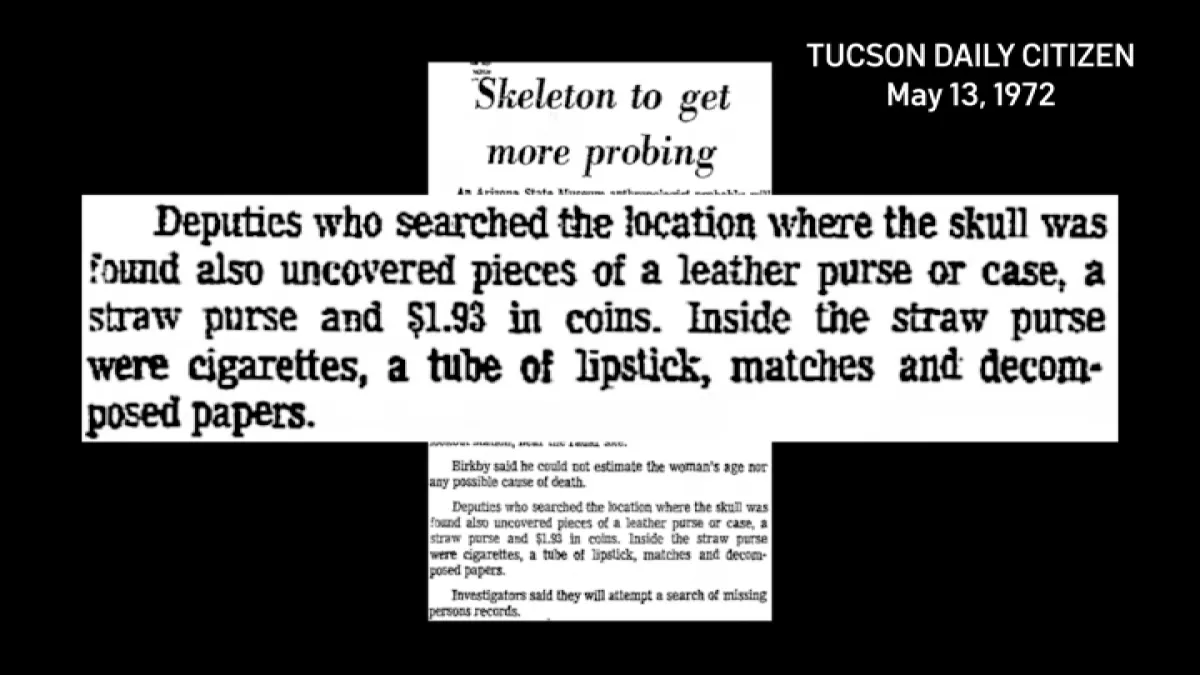A Pennsylvania woman known as “Jane Doe” for over five decades has now been identified.
Her name is Mary Marlovitz and she was found 50 years ago in the Arizona desert. Now, thanks to private funding investigators were able to use new technology to uncover her identity.
The National Missing and Unidentified Persons System has more than 15,000 open cases of remains found with no known name.
Until September of 2025, NamUs highlighted the 1972 discovery of skeletal remains of Marlovitz in Pima County, Arizona, as an active case.
She was found near her straw purse, a bus ticket and couple of cigarettes. Investigators believe that her body could have been in the desert for several years before she was found.
And now, officials were able to finally identify her as Mary Marlovitz, a woman with ties to Erie, Pennsylvania.
To solve her case, like many of the unknown, requires money that many towns and law enforcement agencies do no have.
In the past, investigators relied on missing persons fliers, word of mouth, law enforcement networks and even recreation of remains to try and learn a person’s identity.
As technology advanced with DNA testing and forensic genealogy, so has the expense.
Retired detective Chris McMullin, his wife and two other retired detectives founded the Cold Case Initiative as a non profit that funds DNA and genetic research to identify those who have no known name.
“I don’t like seeing people in a grave where it says ‘Jane Doe’ or “John Doe’. I think they really deserve their name,” McMullin said. “It’s closure on some level. It may not be 100% but it’s a step in the right direction.”
The initiative is run out of living rooms and dining tables and is working to fund the identifications in multiple cases including another John Doe in Arizona.
McMullin explained that he has worked with families of cold case victims who say that money is a barrier they should not have to face.
Identifying a person is the first step in learning what happened to them, McMullin said.
To learn more about active cases that the initiative is working on, click here.

